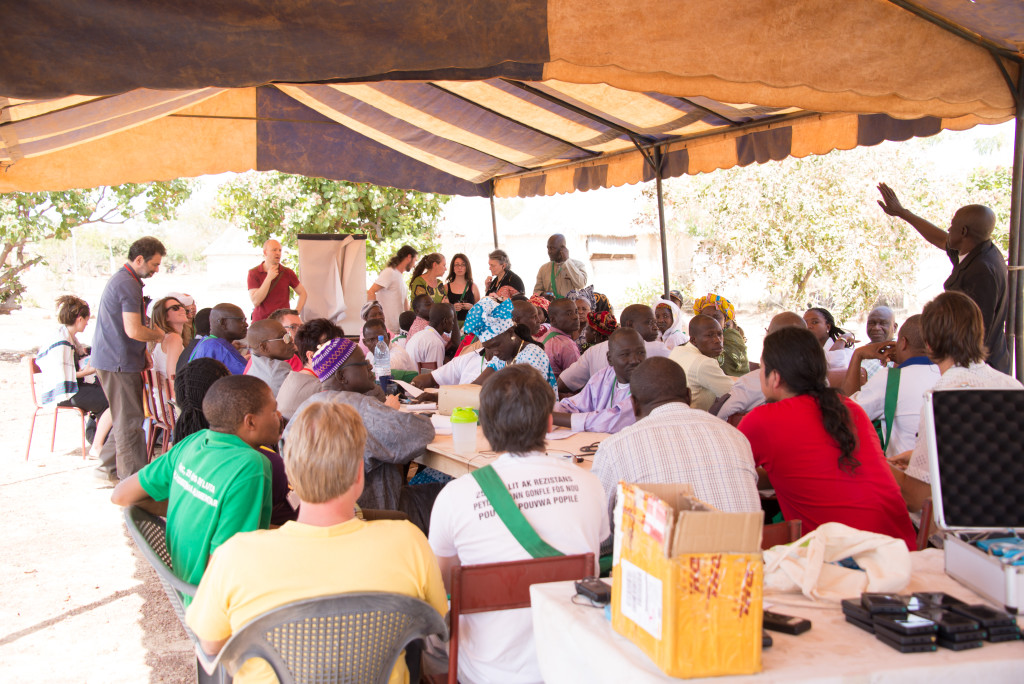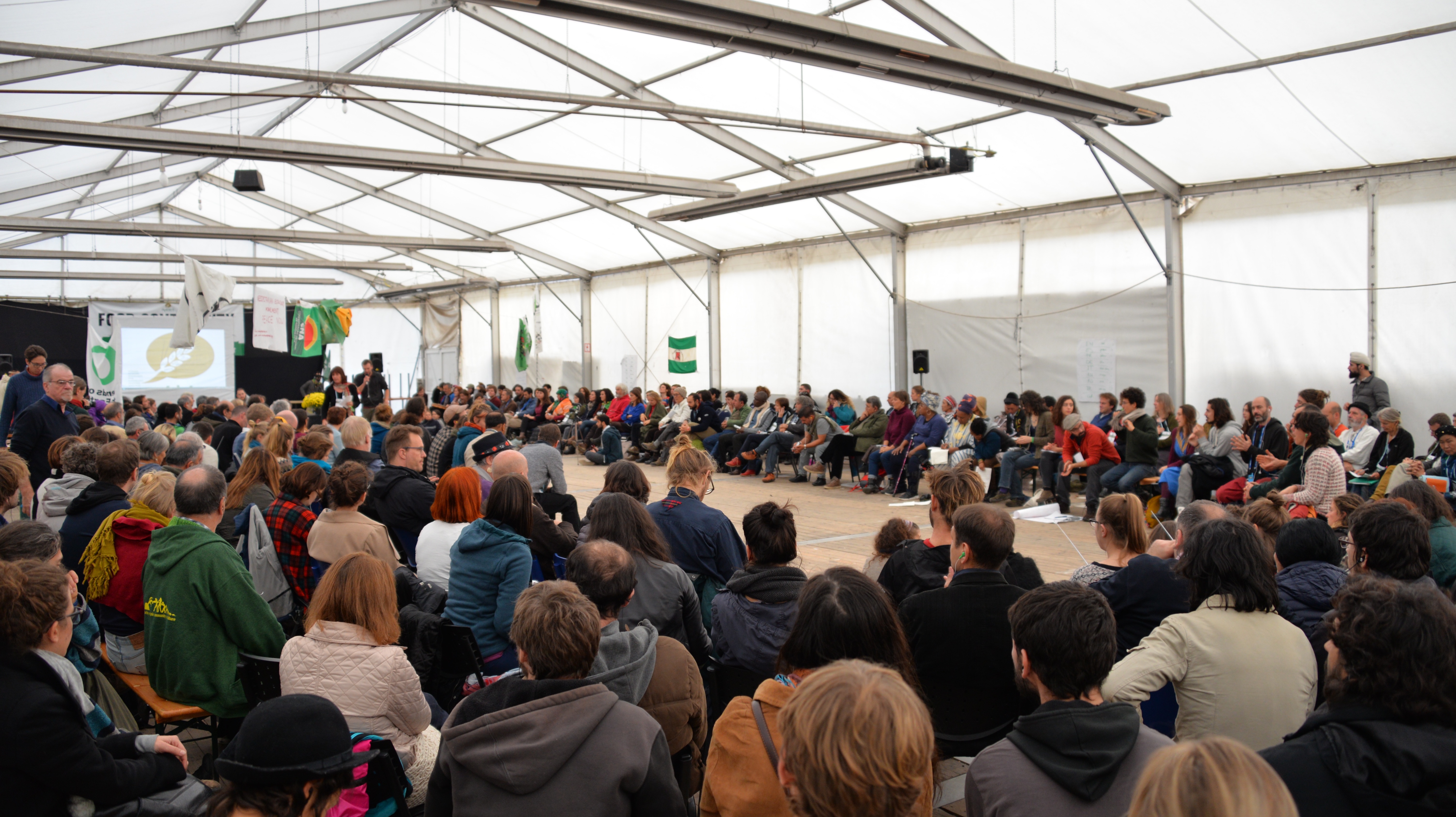This special journal issue shares six articles on on Agroecology Transitions-Transformations in the Journal of Agroecology and Sustainable Food Systems.
The special issue was edited by Colin Anderson, Jahi Chappell and Michel Pimbert with the support of the AgroecologyNow! group at CAWR.
Agroecology Now – Connecting the Dots to Enable Agroecology Transformations
By: Anderson, C.R., Pimbert, M., Chappell, M.J., Brem-Wilson, J., Claeys, P., Kiss, C., Maughan, C., Milgroom, J., McAllister, G., Moeller, N., and Singh, J.
Scale and the Politics of the Organic Transition in Sikkim, India Open Access version (Click here)
By: Meek, D. and C.R. Anderson.
The prefigurative power of urban political agroecology: rethinking the urbanisms of agroecological transitions for food system transformation (Open Access)
By: Tornaghi, C., & Dehaene, M.
Producing urban agroecology in the East Bay: from soil health to community empowerment.
By: Siegner, A. B., Acey, C., & Sowerwine, J.
Nicaragua’s agroecological transition: Transformation or reconfiguration of the agri-food regime?
By: Schiller, K., Godek, W., Klerkx, L., & Poortvliet, P. M.
Alliances for Agroecology: From Climate Change to Food System Change
By: Dale, B.
Can Australia transition to an agroecological future?
By: Alastair Iles
The concept
Agroecology is a radical alternative to the dominant approaches to food and water systems and is poised to meet the urgent need for dramatic changes in agriculture and food systems. Especially over the last five years, agroecology has rapidly been adopted by scientists, governments, the FAO, farmer organisations and food producers around the world. It is gaining legitimacy as a way to address climate change, confront food and nutrition insecurity, meet the SDGs and to realize food sovereignty.

International Agroecology Symposium in Mali
Agroecology promotes functional biodiversity and nutrient cycling and is based on circular systems that mimic natural ecosystems. Agroecology can improve the livelihoods and autonomy of food providers, emphasizing and drawing on farmers’ knowledge, and transforming the social and political structures that are viewed as the root causes of the multiple crises in the food system. Thus, there is growing interest in the potential of agroecology in the transitions towards sustainable and just food systems.
Yet, the question of how to transition towards just and sustainable food systems through agroecology requires further thought and strategizing in light of recent changes in political opportunities, grassroots experimentation and innovation, social movement mobilization and the deeply entrenched industrial-corporate food regime. This special issue includes contributions that examine different aspects of transitions and transformations in food systems through agroecology. Contributions reflect an analysis of processes that are variously referred to as amplification, massification, scaling up, scaling out, transitions or transformations.
In addition to this broad framing for the special issue, our call for proposals invited contributions that:
- Analyze the spatial dynamics of transition processes – focusing on territorial, national, international and cross-scalar processes
- Emphasize and offer new analyses on the relationship between social movements and transition
- Analyze the roles of multiple actors in transitions including farmers, activists, NGOs, private sector, consumers, researchers and more
- Examine the politics of difference, inequity, exclusion, privilege, decoloniality, etc. in transition processes
- Interrogate the role of the state, policies and/or institutions in transition processes
- Engage with the sustainability transitions literature or other critical frameworks on transition processes
- Develop linkages between agroecological transitions (in food systems) and other related transitions (energy, waste, etc.)
- Focus on the links between agroecology, transition and democracy
- Critically apply Marxist, anarchist, feminist or other critical frameworks to agroecological transition
- Make sense of the difference between transition and transformation processes – or that contest the notion of ‘transition’ itself
- Examine agroecological transitions within debates on rural-urban linkages and critically examine the potential of urban agroecology
- Draw from case studies in different regions of the world and that bring multiple perspectives and voices into the work
- Acknowledge and amplify the importance of “People’s Knowledge” in agroecological transitions (see: www.peoplesknowledge.org)

